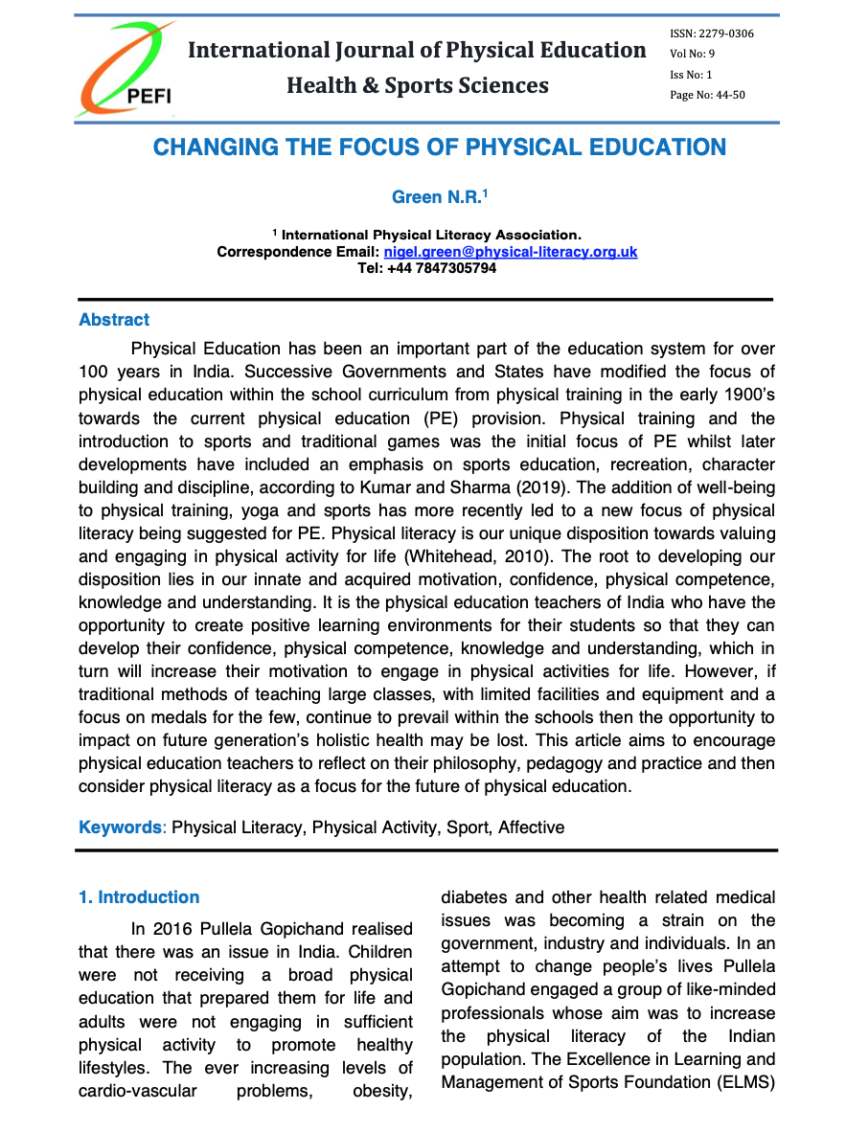Physical Education has been an important part of the education system for over 100 years in India. Successive Governments and States have modified the focus of physical education within the school curriculum from physical training in the early 1900’s towards the current physical education (PE) provision. Physical training and the introduction to sports and traditional games was the initial focus of PE whilst later developments have included an emphasis on sports education, recreation, character building and discipline, according to Kumar and Sharma (2019). The addition of well-being to physical training, yoga and sports has more recently led to a new focus of physical literacy being suggested for PE. Physical literacy is our unique disposition towards valuing and engaging in physical activity for life (Whitehead, 2010). The root to developing our disposition lies in our innate and acquired motivation, confidence, physical competence, knowledge and understanding. It is the physical education teachers of India who have the opportunity to create positive learning environments for their students so that they can develop their confidence, physical competence, knowledge and understanding, which in turn will increase their motivation to engage in physical activities for life. However, if traditional methods of teaching large classes, with limited facilities and equipment and a focus on medals for the few, continue to prevail within the schools then the opportunity to impact on future generation’s holistic health may be lost. This article aims to encourage physical education teachers to reflect on their philosophy, pedagogy and practice and then consider physical literacy as a focus for the future of physical education.
Changing the Focus of Physical Education

